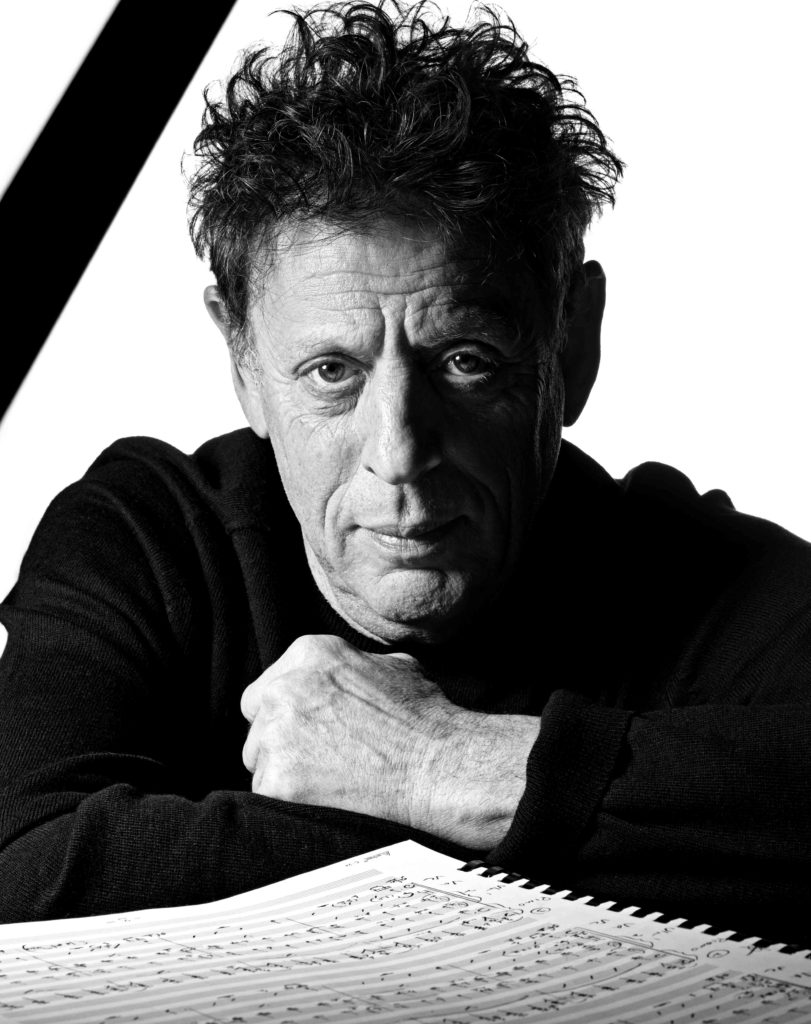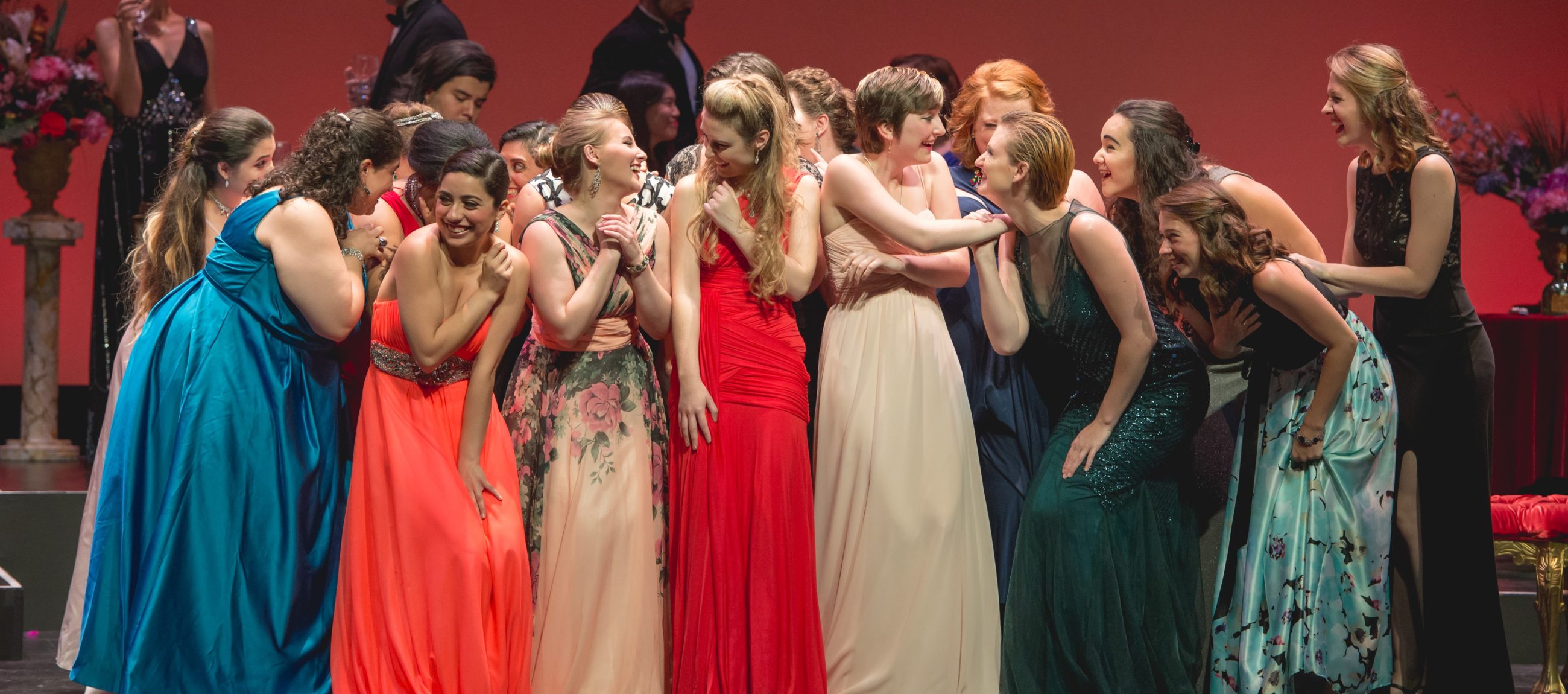The Perfect American
The Midwest Premiere of Philip Glass’  contemporary opera “The Perfect American” occurred at the end of April, which I had the pleasure of singing in as a chorus member. Performed as Harris Theater with Chicago Opera Theater joined with Long Beach Opera to bring this opera to North America for the first time. Due to controversy, the opera had been put on indefinite hold from America until now.
contemporary opera “The Perfect American” occurred at the end of April, which I had the pleasure of singing in as a chorus member. Performed as Harris Theater with Chicago Opera Theater joined with Long Beach Opera to bring this opera to North America for the first time. Due to controversy, the opera had been put on indefinite hold from America until now.
This controversial subject consists of one of the most beloved Americans of all time: Walt Disney. Based on the book “Der König von Amerika” written by Peter Stephen Jungk, this story portrays a fictional account of the last few months of Disney’s mortal life. Whereas the book is strictly from the perspective of Wilhelm Dantine, a (fictionalized) obsessive former employee of Disney who was fired over political affiliations, the opera is more from the perspective of Disney himself and the existential angst he has facing death. The librettist, Rudolph Wurlitzer, delicately took scenes from the book, creating his own context. While remaining mostly faithful to the book, he took liberty deviating from a linear timeline.
The setting of the opera was in Walt’s hospital room with his family, reliving memories, experiencing new ones— possibly hallucinating ideas of grandeur. The staging wittily used the objects in the hospital room for multiple purposes, such as toilet paper for a ribbon cutting ceremony, head mirrors for Mickey Mouse ears, and hospital beds for trains.
As Walt continues to enter deeper into the fact that his death is inevitable, we see the juxtaposition of his reality and fantasy, personal life and work, mortality and immortality. His whole basis of Main Street USA in Disney Land was the town of Marceline where he grew up. In a way, he had already started molding his reality into a fantasy that everyone could experience joy from his nostalgia, where he listened to trains hurtle by, drew sketches of country critters, and where negative thoughts never permeate the mind. Marceline was the thought that brought him comfort when in pain, the ignorant bliss of his childhood which he returned to during his hours of torment in his hospital room when he couldn’t face reality.
A fascinating effect used in the staging was shadow puppetry, which brought to mind Plato’s Cave Allegory. Objects and persons were used to cast shadows on Walt’s privacy curtain. Disney built his little town of Marceline using items from the hospital making them silhouette as a skyline with a lamp. Behind the curtain, he transformed himself into Mickey Mouse by wearing two head mirrors as ears. During his funeral, his family continued to portray this shadow of reality by stacking seemingly random objects, but when lit on the backdrop, no one could help but think of Disney World’s Magic Kingdom.
There are two more references of Greek inspiration in this opera. The first is the portrayal of Walt Disney as Plato himself. During hallucinations and torments on his bed, he often reached his hands to the heavens, pointing with his index finger, giving the imagery of the infamous painting of Plato and Aristotle. Plato’s philosophy was to show there is more to life than this reality we see, this is a shadow of what is real. Walt wanted to build his own reality of the shadows he saw to create his own heaven on earth with his mighty kingdoms and happily ever after stories.
The second is the role of the chorus. Separated from the main story line of the opera, they were set behind a backdrop and lit up only to make extra commentary of what they viewed on stage. This Greek chorus, represented as Disney’s workers, only once stepped out of their passive position of commentary to defend Disney from the crude accusations during a protest to soften the hearts of the activists. Not only did the words of the chorus tell a story, but the chords Glass used did as well. At times, one could be drawn back to the sweet choruses from Walt Disney’s films such as Peter Pan or Snow White.
Disney was portrayed as having a difficult time ceasing from his work, even disassociating his name from his company, viewing his own family members as laborers and dictating orders to them. This was visible in the opera as his family members were staged as his own studio artists working for him and protestors crying for an ethical living. Even at the end, they are left to build his Magic Kingdom.
The last struggle between mortality and immortality is his desire for his kingdom to live forever. If he must be forgotten, then he must be sure his creations, Mickey and Donald, are eternal. He compares them to others from history known by all—Moses, Zeus, Jesus—and desires Mickey and Donald to be on par with them. Disney himself doesn’t want to disappear into nonexistence either, so he requests the preservation of his body in liquid nitrogen, which is never fulfilled. Though his body was destroyed in cremation, his kingdom continued to flourish and still does to this day.
Reviews
Philip Glass’ opera ‘The Perfect American’ imagines Walt Disney’s demons
A darker Walt Disney conjured in ‘The Perfect American’
Opera Review: THE PERFECT AMERICAN (Chicago Opera Theater at the Harris Theater)
Chicago Opera Theater presents THE PERFECT AMERICAN Review—A Meditation on Legacy
“The Apollo Chorus does great work as Disney’s wistful but endlessly dedicated army of animators, relegated to the background but crucial to supporting the fluid, meditative score.”
Chicago Opera Theater’s ‘Perfect American’ brings American icon Walt down to earth
